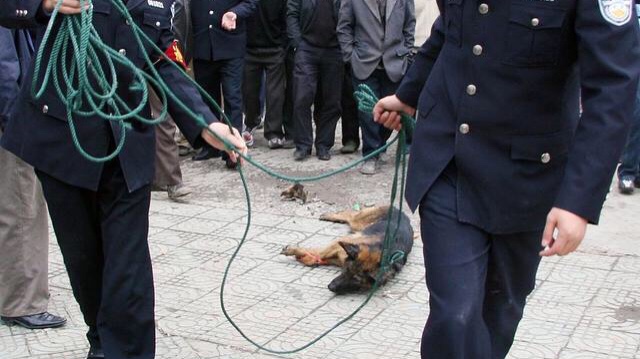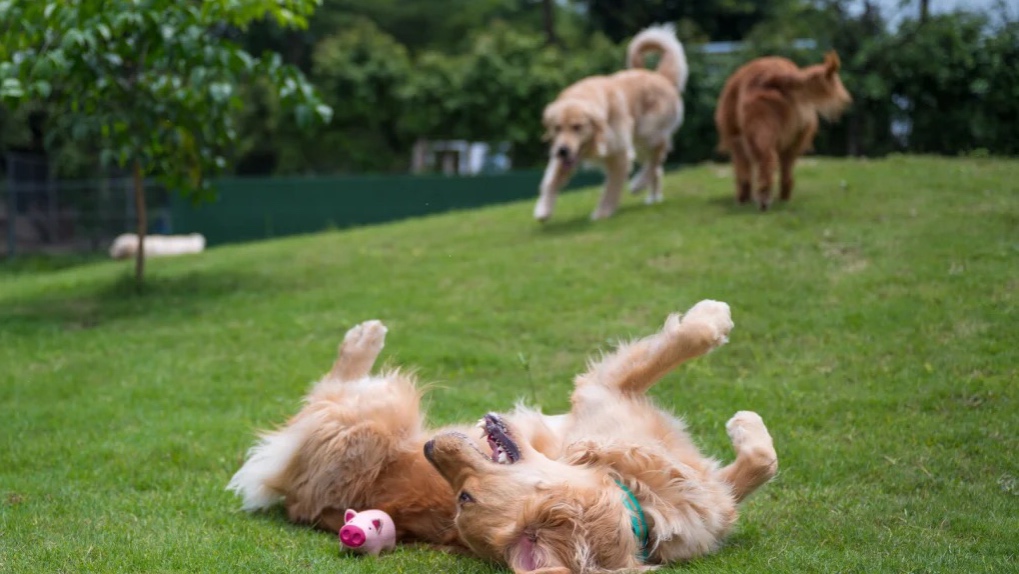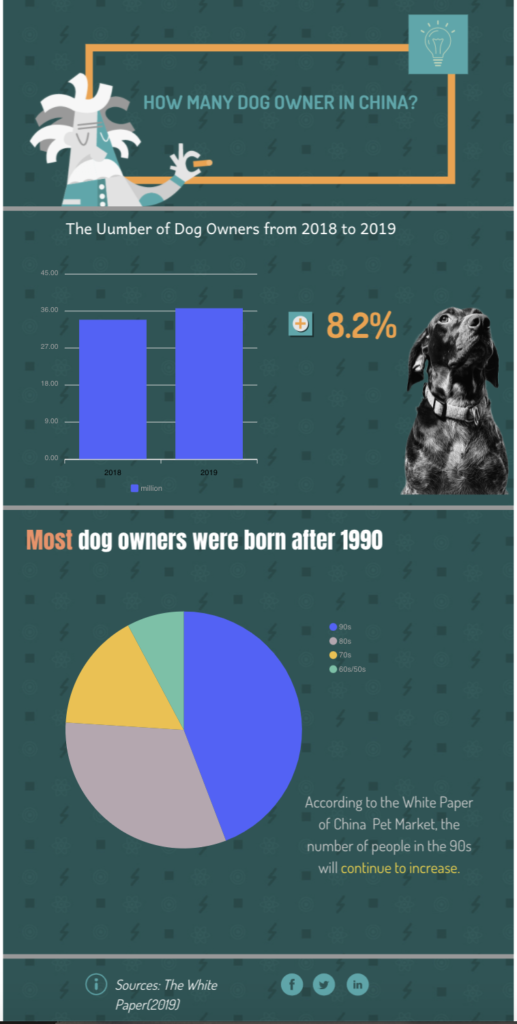Large dogs have become increasingly popular in China, but it can often lead to conflict between dog-owners and their neighbours. How can this conflict be resolved?
A violent brawl broke out between a large dog owner and his neighbour in a downtown Chengdu neighborhood. When community manager Ling Wu received a call from a resident, she rushed to the scene in order to make adjustments. There, she saw an old man lying on the road, and the man standing next to him looked confused and lost.
“The old man died before he was taken to hospital, and the doctor’s report confirmed that he died of a sudden heart attack”, said Ling Wu. The quarrel between the neighbours turned out to be about one of them calling the police. “The owner has a grudge against losing his dog because of a tip-off from a neighbor. When he met the old man again, abusive words from both sides caused the two to get into a heated quarrel, and the old man died suddenly because he went extreme anger.

In fact, it’s not just in the neighborhood where Wu works that conflicts arise because of dogs. Rising tensions in Qiming Wang’s neighbourhood have led to the deaths of six large dogs from isoniazid, an antibiotic used to treat tuberculosis. These pills are often put in food and dogs can die if they take them. He is a member of the Chengdu Animal Society and the owner of an adult Labrador. Unfortunately, the dog, whom he considered as his best friend, left him for good last month after eating poison on the lawn last month.
“It is inhumane for these despicable people to poison dogs in such a despicable way. It is absolutely murder”, he said. They found that someone had deliberately wrapped the poison in sausages and left it on the grass nearby. “They even drop poison directly into the homes of people who have big dogs, which means that when you come home and you open the door, you’ll find that your dog has been poisoned. A friend of mine had a golden retriever who died in the backyard by eating poison thrown in from outside”, he says.
“Why can’t they forgive a dog?” Wang said. Through surveillance video, he discovered that the poisoner was a neighbour living in the same neighborhood. That man have repeatedly complained in the neighborhood of uncivilized dog behavior.

The problem of keeping big dogs in the community has become a reason of strife among neighbours. “I’ve adjusted neighborhood conflicts many times, with complaints about big dogs showing a significant rise”, Wu said. In the first half of 2020, of the 125 disputes the community service center handled, 50 were complaints about dog ownership, or 40 percent of the total.
In addition, according to a separate report issued by the Chengdu Public Security Bureau, the main reasons for complaints against big dog owners were uncivilized behavior by dog owners, including noise caused by barking, injuries caused by dog bites, poor management of dog owners, pollution of the public environment by pet feces, and persistent selfish attitudes of owners.
“A lot of excrement from big dogs and people’s primal fear of big animals may also be the cause of the dispute”, said Ling Wu, who based her view on years of working experience. But professor Liu Xin who comes from Renmin University of China and major in the School of Public Administration and Policy, took a surprisingly similar view. Liu told The Southern Weekend newspaper that pets could become a potential physical or psychological threat if someone who dislike dogs.

“In addition, rampant rabies is also the reason why some people are firmly against owning dogs, causing conflicts”, Liu said. 3,820 people died of rabies in China from 2016 to 2019. Last year, the disease made 410 people lost their live in China, second only to India, according to the Chinese Center for Disease Control and Prevention,.
The high mortality rate of rabies is closely related to the low vaccination rate and the increasing number of stray dogs. The rabies vaccine coverage rate for pet dogs in China is less than 20 percent, far below the minimum effective vaccination rate of 70 percent, Southern Weekend reported in 2017. In rural areas, only three percent of the population has been vaccinated.

In addition to the resistance that larger pets bring to anti-dog people, the behavior of dog owners is also being questioned. As Liu noted in this interview, “Unlike in the past, more and more Chinese dog owners are living in urban areas, but the pace of urbanization is faster than in the past, which makes them think or live in a ‘rural way’. They seldom consider the feelings of others and are reluctant to restrain themselves. These are the sources of conflict.”
The government has banned dogs taller than 35cm from staying in cities as a growing number of social problems arise from the breeding of large dogs. But Ruihong Shen, secretary-general of the China Animal Protection Association, “The government needs to punish uncivilized dog owners, not dogs. The government should strengthen the management of uncivilized dog keeping behavior, appropriately increase the fines, increase the cost of mistakes of uncivilized dog owners”, she said.
“There are also special provisions in the civil code for some uncivilized animal husbandry practices. For example, if a dangerous animal, such as a fierce dog, which does not take safety measures to the animal and causes damage to others in violation of the management regulations, or a dangerous animal, such as a dog that is prohibited from breeding, causes damage to others, the breeder or manager shall bear the responsibility regardless of whether the infringed party causes damage intentionally or grossly negligently. However, in the absence of safety measures taken against the animal to cause harm to others, being able to prove that the damage was intentionally caused by the infringed can reduce liability”, he said. He suggested regular training for dog owners, electronic microchips and stiff fines for abandoning animals.

In an interview with Southern Weekend, Professor Liu Xin pointed out that policy makers need to find a balance between dog owners and others who stand in the different side. He believes that it is more about social behavior for dog owners, but this requires constant adjustment and a balanced view of both sides. “The policy gives residents the right to report dog owners, but whether to impose fines or confiscate dogs depends on the circumstances. Government inspectors should not let go of any uncivilized behavior, but should not wrongfully accuse anyone who keeps dogs in accordance with the rules”, he said.
When Wu went back to the dog owner who had brawl with the elderly man to learn more about the case, the owner told her why he was so angry at the time. “He told me that he never thought he had any uncivilized behavior and that he always tried his best not to disturb others’ lives, but because of the government’s new reporting system, he was reported by his neighbors without knowing it, leading to the loss of the dog he had kept for six years”, she said.

